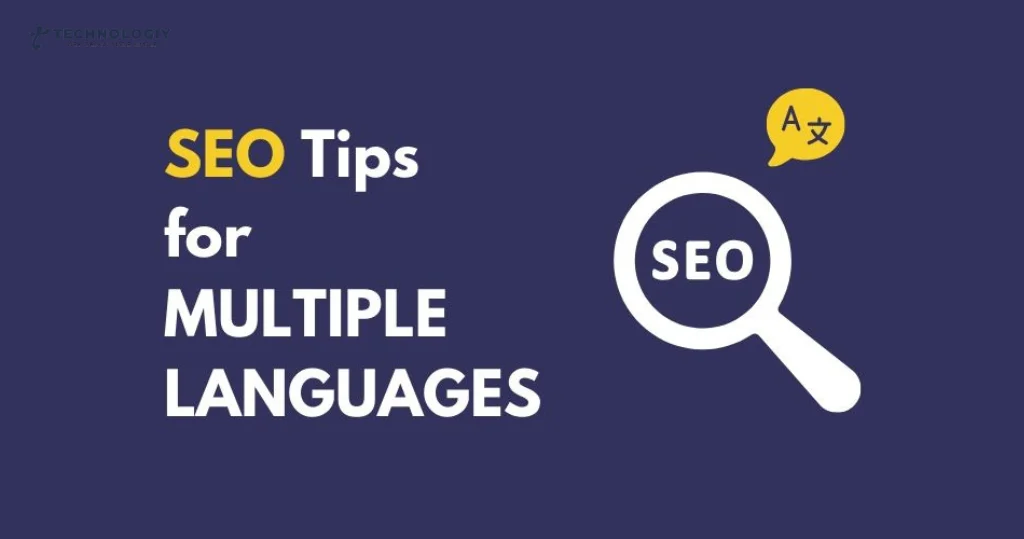The Impact of Multilingual SEO for WordPress: Unlocking New Opportunities for Your WordPress Website In today’s digital age, having a strong online presence is crucial for businesses to thrive and expand their reach. With the increasing globalization of markets, targeting a multilingual audience has become a necessity rather than a luxury. This is where Multilingual SEO for WordPress comes into play, revolutionizing the way websites are optimized for search engines in multiple languages.
So, what exactly is Multilingual SEO for WordPress? In simple terms, it is the process of optimizing your WordPress website to rank high in search engine results for different languages. By implementing strategic SEO techniques, you can ensure that your website attracts organic traffic from diverse language-speaking users, ultimately driving more leads and conversions.
Let’s dive into the impact it can have on your online presence:
Expanding Your Global Reach:
With the help of Multilingual SEO for WordPress, you can tap into new markets and target a wider audience base. By optimizing your website for different languages, you can connect with potential customers who prefer to browse the internet in their native language.
Gaining a Competitive Edge:
In a highly competitive online landscape, staying ahead of the competition is crucial. By investing in Multilingual SEO for WordPress, you can gain a competitive advantage by targeting keywords and phrases in different languages that your competitors may not be optimizing for. This allows you to attract a larger share of the multilingual market and establish your brand as a leader in your industry.
Improving User Experience:
Multilingual SEO for WordPress goes beyond just translating content. It focuses on providing a seamless user experience to visitors, irrespective of the language they speak. By optimizing your website for multiple languages, you can ensure that users can navigate through your pages easily, find relevant information, and engage with your content. This builds trust, encourages longer browsing sessions, and increases the likelihood of conversions.
Enhancing Search Engine Visibility:
Search engines like Google are continuously evolving to provide the best search experience to users worldwide. By implementing Multilingual SEO for WordPress, you can align your website with search engine algorithms, making it easier for search engines to understand and index your multilingual content. This, in turn, enhances your website’s visibility and rankings in search engine results pages (SERPs).
Boosting Conversion Rates:
By speaking the language of your target audience, you can establish a deeper connection and build trust with potential customers. Multilingual SEO for WordPress enables you to optimize your content in a way that resonates with your audience, effectively addressing their needs and concerns. When visitors feel understood and catered to, they are more likely to convert into paying customers, leading to increased revenue and business growth.
Keyword Research and Localization:
Boost Your Multilingual SEO for WordPress Are you looking to expand your online presence and reach a global audience? If so, it’s essential to understand the importance of keyword research and localization in optimizing your WordPress website for Multilingual SEO for WordPress. With the right approach, you can significantly improve your search engine rankings and attract more organic traffic from around the world. In this blog post, we will explore the concept of multilingual SEO and provide you with valuable insights on how to effectively conduct keyword research and localization for your WordPress website.
Why is Multilingual SEO Important?
As the internet continues to connect people across borders and cultures, businesses and website owners need to adapt their online strategies accordingly. Multilingual SEO for WordPress plays a crucial role in ensuring that your website ranks high in search engine results in different languages. By optimizing your website for multiple languages, you can attract a diverse range of visitors and potential customers from various regions.
The first step towards a successful Multilingual SEO for WordPress strategy is conducting comprehensive keyword research. Keyword research involves identifying the words and phrases that your target audience is using to search for products, services, or information related to your business. By understanding what keywords are relevant and popular in different languages, you can tailor your content to meet the needs of your multilingual audience.

Conducting Keyword Research for Multilingual SEO for WordPress:
When it comes to keyword research for Multilingual SEO for WordPress, there are a few important factors to consider. First, you need to determine which languages you want to target. This will depend on the nature of your business and the regions you wish to expand into. Once you’ve identified the languages, you can start researching keywords using various tools and resources.
There are several keyword research tools available that can help you find the right keywords for your Multilingual SEO for WordPress strategy. Google Keyword Planner, SEMrush, and Ahrefs are some popular tools that can provide insights into keyword search volume, competition, and related terms. Make sure to use these tools to identify keywords that are relevant to your industry and have a high search volume in the languages you are targeting.
Localizing Your Keywords for Multilingual SEO for WordPress Localization is a crucial aspect of Multilingual SEO for WordPress. It involves adapting your keywords and content to specific regions and languages to ensure that your website appears in local search results.
When localizing your keywords, consider the following:
Language nuances:
Each language has its own grammatical rules and cultural nuances. Take these into account when translating and localizing your keywords. Avoid literal translations and focus on capturing the intent and context of the keyword.
Localized search trends:
Research local search trends in the regions you are targeting. This will help you understand what keywords are popular and relevant to your target audience in each specific location.
Local competitors:
Analyze the keywords and SEO strategies used by your local competitors. This can provide valuable insights into the keywords that are driving organic traffic in each region.
Optimizing Your WordPress Website for Multilingual SEO:
Once you have identified and localized your keywords, it’s time to optimize your WordPress website for Multilingual SEO for WordPress.
Here are some tips to assist you in getting started:
Multilingual SEO plugin:
Install a Multilingual SEO for WordPress plugins, such as Yoast SEO or All in One SEO Pack. These plugins provide features specifically designed to optimize your website for multilingual SEO.
Translate your content:
Translate your website content into the languages you are targeting. Use professional translators or translation services to ensure accuracy and quality.
Implement hreflang tags:
Hreflang tags help search engines understand which language version of your content to display to users in different regions. Implementing hreflang tags correctly can significantly improve your website’s visibility in multilingual search results.
Optimize meta tags and URLs:
Customize your meta tags and URLs for each language version of your website. Include relevant keywords in your meta tags and ensure that your URLs are descriptive and user-friendly.
Technical SEO Considerations for Multilingual SitesWhen it comes to optimizing multilingual websites, there are several technical SEO considerations that need to be taken into account. With the increasing globalization of businesses and the need to reach a wider audience, implementing effective Multilingual SEO for WordPress strategies has become crucial. In this article.
we will discuss some key technical SEO considerations specifically for multilingual sites, with a focus on WordPress.
Implement Hreflang Tags:
Hreflang tags are an essential element for Multilingual SEO for WordPress as they indicate to search engines which language version of a webpage should be displayed to users depending on their location and language preferences. By implementing hreflang tags correctly, you can ensure that search engines understand the language and geographical targeting of your content, preventing any potential duplicate content issues.
Use a Translation Plugin:
WordPress offers various translation plugins that can help you easily translate your website content into different languages. These plugins not only streamline the translation process but also provide options for optimizing the translated content for SEO purposes. WPML, Polylang, and Weglot are among the popular translation plugins available for WordPress.
Optimize URL Structure:
When dealing with multilingual sites, it’s important to have a clear and consistent URL structure that reflects the language of the content. For example, using subdirectories (e.g., /en/, /es/) or subdomains (e.g., en.example.com, es.example.com) can help search engines understand the language targeting of your pages. Make sure to avoid using parameters or query strings in the URL, as they can cause confusion and negatively impact SEO.
Enable Language-Specific Sitemaps:
Creating language-specific sitemaps can further enhance the visibility of your multilingual content. By submitting separate sitemaps for each language version of your website, you can ensure that search engines crawl and index the correct pages for each language. This can help improve the overall SEO performance of your multilingual site.
Consider Server Locations:
The physical location of your server can also impact the SEO performance of your multilingual site. If you are targeting specific regions or countries with different language versions, consider hosting your website on servers located in or near those target locations. This can help improve website loading speed and overall user experience, which are important ranking factors for search engines.
Optimize Metadata and On-Page Elements:
Just like with any SEO strategy, optimizing metadata and on-page elements is crucial for multilingual sites as well. Ensure that your title tags, meta descriptions, headings, and alt tags are properly translated and optimized for each language version. This will not only help search engines understand the context of your content but also improve click-through rates and user engagement.
Monitor and Analyze Language-Specific Keywords:
Conducting keyword research specific to each language is essential for Multilingual SEO for WordPress success. Different languages may have varying search behaviors, and it’s important to identify the relevant keywords in each language to optimize your content accordingly. Utilize keyword research tools and analytics to monitor the performance of your language-specific keywords and make necessary adjustments to your SEO strategy.
In conclusion, optimizing a multilingual website for SEO requires careful attention to technical considerations. By implementing hreflang tags, using translation plugins, optimizing URL structures, enabling language-specific sitemaps, considering server locations, optimizing metadata and on-page elements, and monitoring language-specific keywords, you can significantly improve the visibility and ranking of your multilingual site. Keep these technical SEO considerations in mind while working on your WordPress website to ensure maximum success in Multilingual SEO for WordPress.
